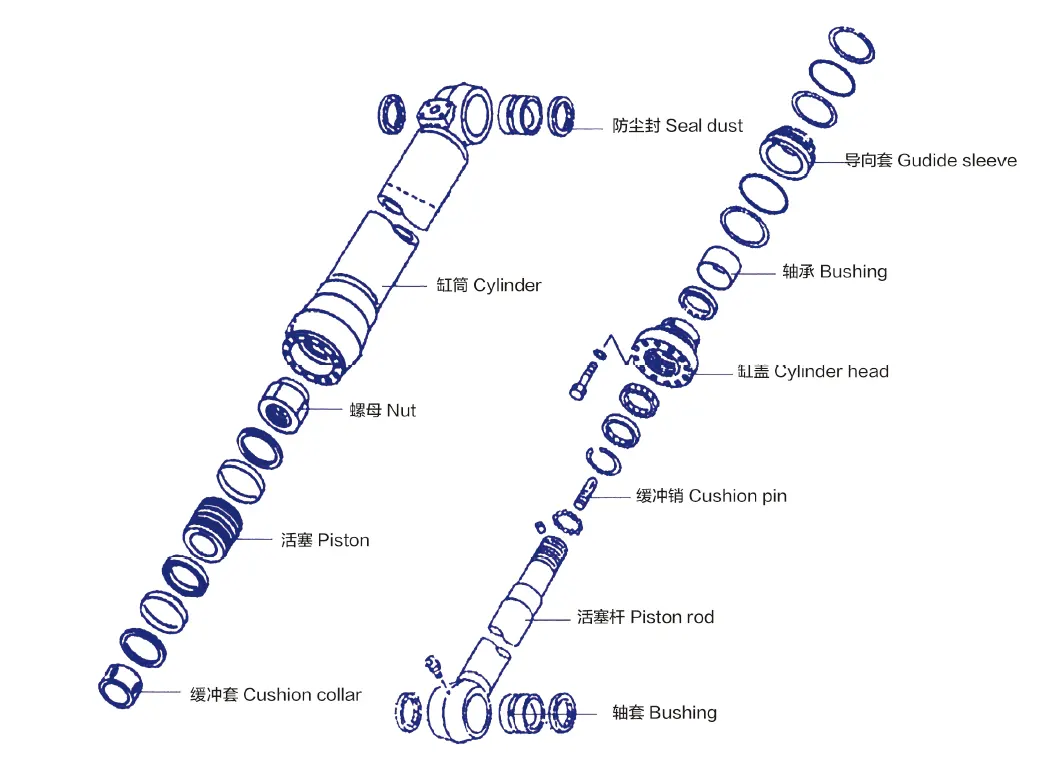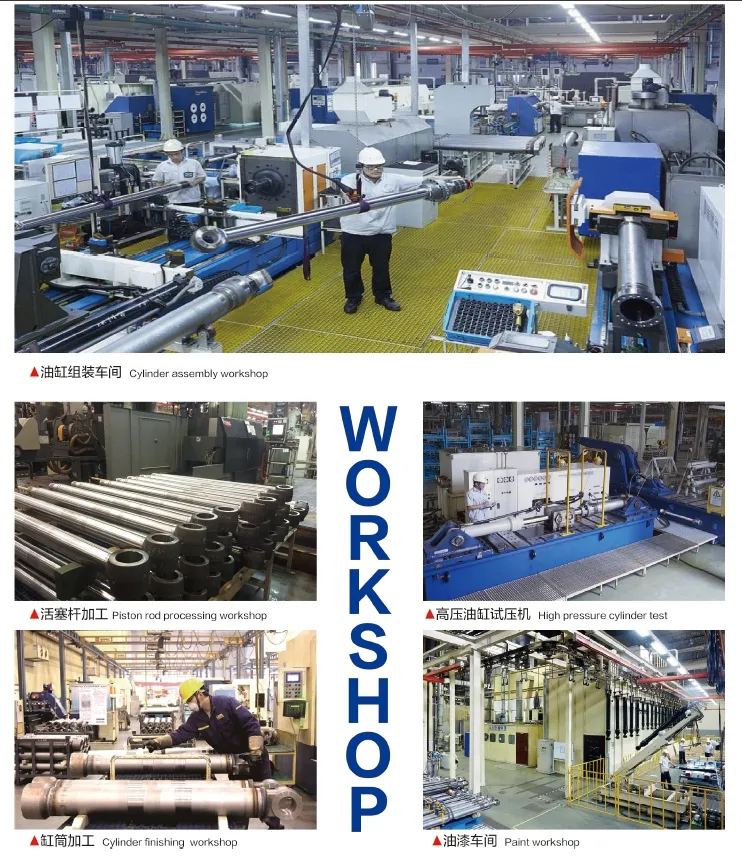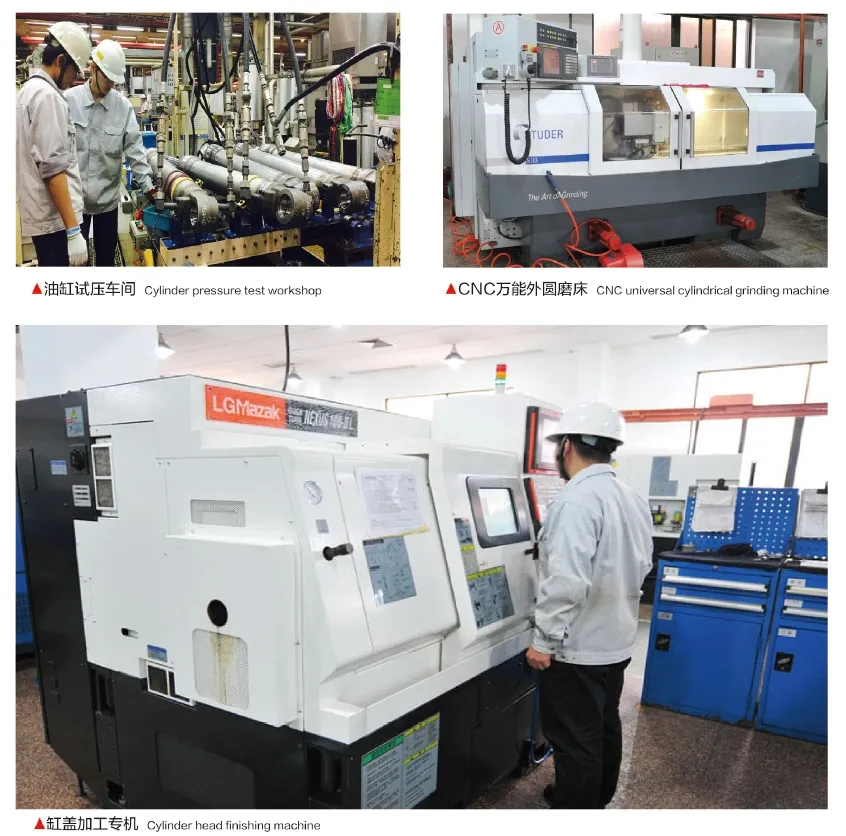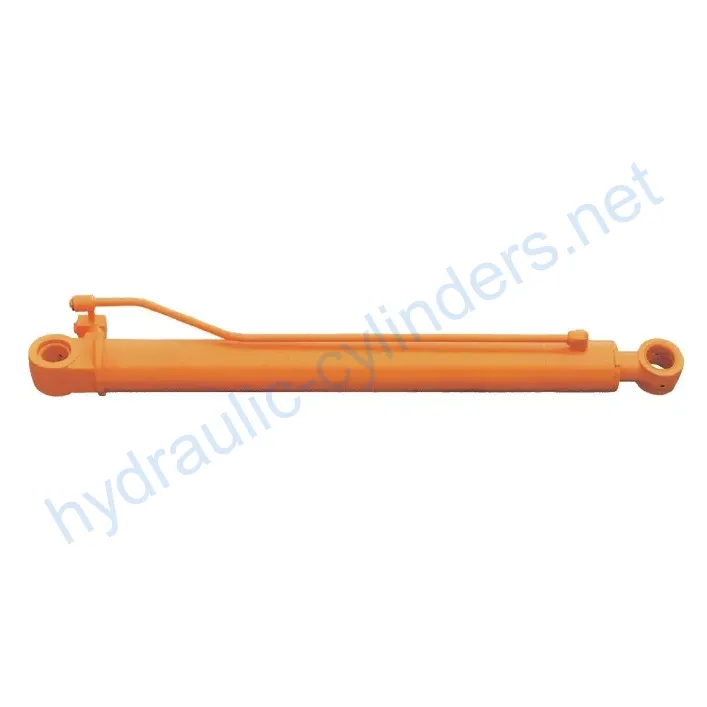Arm Cylinder For Kato Small Excavator HD512R
As one of the hydraulic cylinders manufacturers, suppliers, and exporters of mechanical products, We offer hydraulic cylinders and many other products.
Please get in touch with us for details.
Mail:sales@hydraulic-cylinders.net
Manufacturer supplier exporter of hydraulic cylinders.
Arm Cylinder For Kato Small Excavator HD512R
Introduction
An arm cylinder is a specialized hydraulic cylinder used for providing linear motion and power to the arm of various types of machinery such as excavators, cranes, and robotic arms. The arm cylinder plays a critical role in hydraulic systems, enabling the effective movement and control of accessories or attachments. These cylinders not only provide smooth motion but also withstand heavy loads, ensuring efficient operation and reliability of machinery under various operating conditions.

Definition and Explanation
The arm cylinder is a type of hydraulic cylinder designed to provide a powerful linear motion and force to the machinery arm. It is essential for controlling the movement of attachments or accessories, such as buckets or booms, in various operational scenarios. The arm cylinder is typically made of high-strength materials and engineered to withstand harsh environments, ensuring long-term durability and reliability.
Features
The arm cylinder offers various features that enhance its efficiency and adaptability to different machinery and operational scenarios. Some of the key features include:
-
High-Efficient Transmission:
The arm cylinder provides a powerful linear motion and force to ensure high-performance operation of machinery arms in various scenarios.
-
Precise Control:
The hydraulic system enables precise control of the arm cylinder’s movement, making the operation of attachments or accessories more flexible and accurate.
-
Strong Durability:
The arm cylinder is made of high-strength materials and has excellent wear and corrosion resistance, making it suitable for long-term use in harsh environments.
-
Multi-functional Adaptability:
The cylinder is widely applicable to various types of machinery, such as excavators, cranes, and robotic arms, to meet different operational needs.
-
Easy Maintenance:
The design ensures easy maintenance and replacement, making regular checks and maintenance more convenient and reducing equipment downtime.

Applications
The arm cylinder is widely used in various industries and machinery, such as:
-
Construction Engineering:
Arm cylinders are used to control the movement of buckets or booms in excavators and cranes for earthmoving, material handling, and structural installation.
-
Manufacturing:
They are used in automated production lines to control the movement of robotic arms for assembly, welding, and handling processes, improving production efficiency and accuracy.
-
Agriculture:
In agricultural machinery like harvesters and seeders, arm cylinders control the movement of operating arms for seeding, fertilizing, and harvesting tasks.
-
Mining:
Arm cylinders are used to control the arm movement of mining equipment for mining and material handling.
-
Logistics and Transportation:
In forklifts and handling robots, arm cylinders are used to control the movement of cargo forks for material handling and stacking.
Design Considerations and Selection Standards
The arm cylinder’s design and selection are crucial for ensuring optimal performance and safety. Some key design considerations include:
-
Load-Bearing Capacity:
The cylinder’s load-bearing capacity must match the machinery’s weight and operational requirements.
-
Sealing:
The arm cylinder should have high-quality sealing components, such as piston seals and rod seals, made of durable materials such as polyurethane and nitrile rubber, to prevent oil leakage and reduce wear and tear.
-
Durability:
The cylinder should be made of high-strength materials and engineered to withstand harsh environmental conditions.
-
Safety:
The cylinder should be designed with safety features such as emergency relief valves and pressure relief valves to prevent damage or accidents caused by overpressure.
-
Maintenance:
The cylinder should be designed for easy maintenance and replacement of parts, such as the seal kit and hydraulic oil, to minimize downtime and repair costs.

Sealing and Lubrication
The arm cylinder requires proper sealing and lubrication to ensure optimal performance and durability. Some key considerations include:
-
Sealing:
Various sealing components, such as piston seals and rod seals, should be made of high-quality materials such as polyurethane and nitrile rubber to ensure oil-tightness and reduce wear and tear. The cylinder’s body and thread surface should also undergo fine processing to improve wear resistance.
-
Lubrication:
The cylinder should be lubricated with suitable hydraulic oil to ensure smooth operation and prevent wear and tear of sealing components. Regular oil replacement and cleaning are necessary to prevent contamination and extend cylinder life.

Preventative Maintenance
Regular checks and maintenance are crucial for ensuring optimal performance and extending the lifespan of the arm cylinder. Some key preventive maintenance measures include:
-
Regular Inspections:
Regular inspections of the cylinder’s body, seals, and oil level can identify potential problems and prevent costly downtime.
-
Cleaning:
Regular cleaning of the cylinder’s body and thread surface can prevent contamination and reduce wear and tear of sealing components.
-
Oil Replacement:
Regular oil replacement can ensure smooth operation and prevent wear and tear of sealing components.
-
Repair:
Prompt repair of minor defects or damage can prevent further damage and ensure optimal performance.

Installation Guide
The arm cylinder installation should follow these steps:
- Ensure that the installation site is clean and free of debris.
- Ensure that the cylinder and associated components, such as the mounting bracket and hoses, are securely fastened.
- Connect the hoses according to the manufacturer’s instructions.
- Check all connections for leaks and proper operation before operating.


About Us
We are a leading manufacturer and wholesaler of hydraulic cylinders, offering a wide range of products that have become a market leader in both domestic and international markets. We are committed to excellent quality and rely on industrialized production management strategies in our refined manufacturing workshops to continuously improve our technical capabilities and production efficiency. We have introduced high-end digital manufacturing equipment and professional testing systems to optimize our manufacturing platform and improve our product quality control processes, which gives us strong innovation capabilities. Our goal is to meet the diverse needs of our customers with high efficiency, precision, and high-quality products.
We offer a full range of services, including professional expertise, international certifications, customized services, production equipment, and after-sales service, among others.
Author: lyl
Take a Tour of Our VR Factory:
Take a tour of our VR factory with the following
Hydraulic Cylinder Application:


